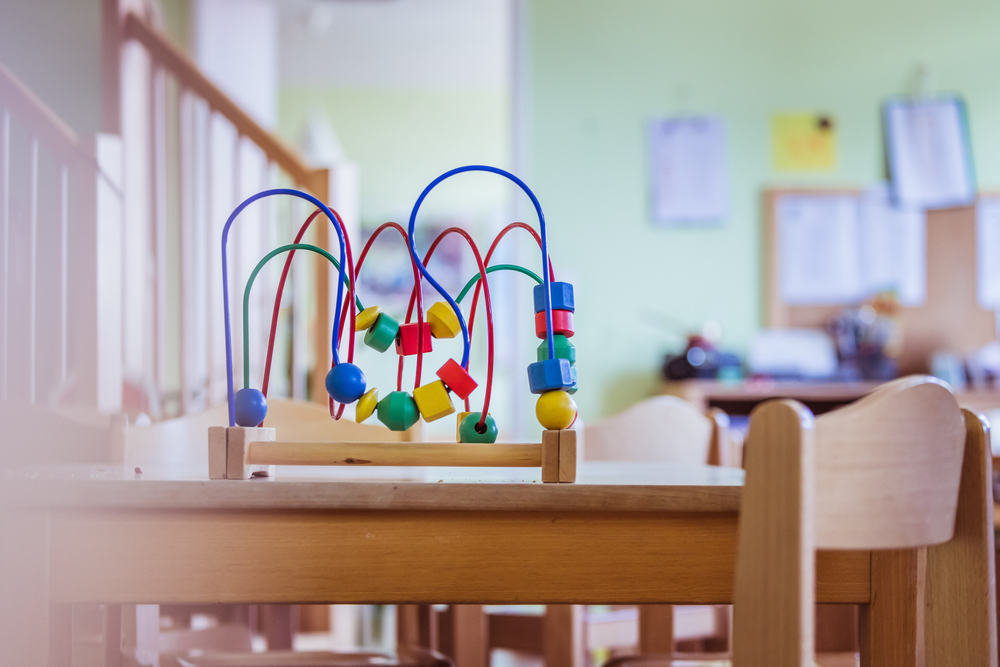Enhancing observation skills Science Worksheets for Ages 5-9
11 filtered results
-
From - To
Unlock your child's potential with our "Enhancing Observation Skills Science Worksheets" designed for ages 5-9! These engaging and interactive worksheets foster essential observational skills through a variety of fun activities and exercises. Kids will explore the wonders of science while learning to notice details, make predictions, and draw conclusions. Each worksheet encourages curiosity and critical thinking, laying a strong foundation for future scientific learning. Perfect for home or classroom use, our resources are tailored to inspire young minds and boost confidence in their observational abilities. Start your child’s exciting journey into science today! Explore, observe, and learn with us!
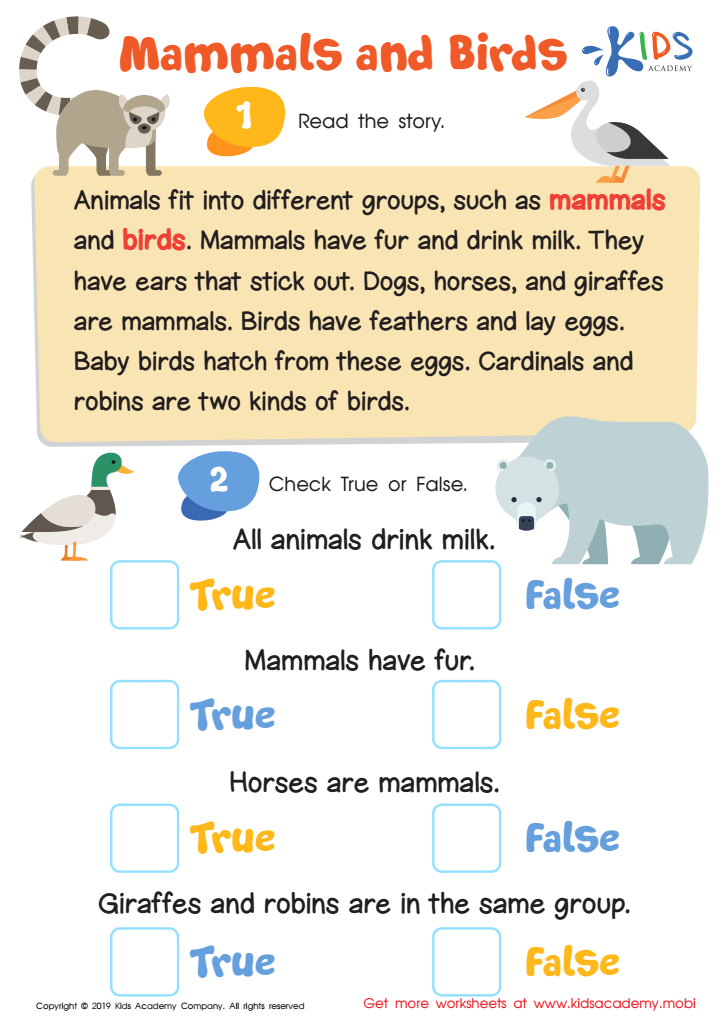

Mammals and Birds Worksheet


Pollinator Positions Worksheet
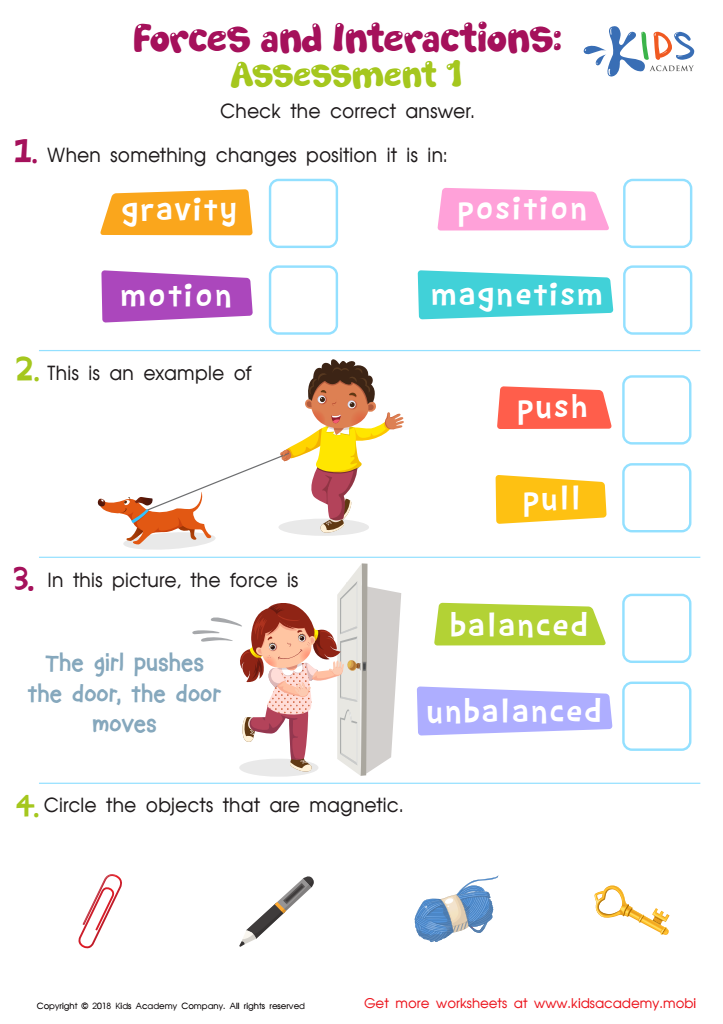

Forces and Interactions Printable
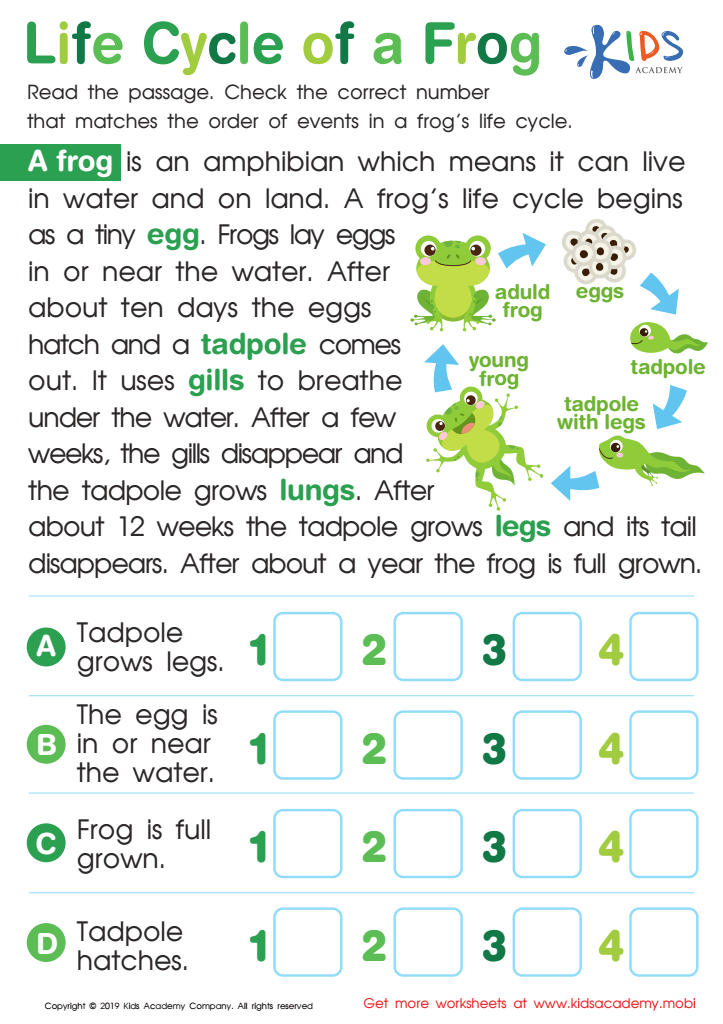

Life Cycle of a Frog Worksheet
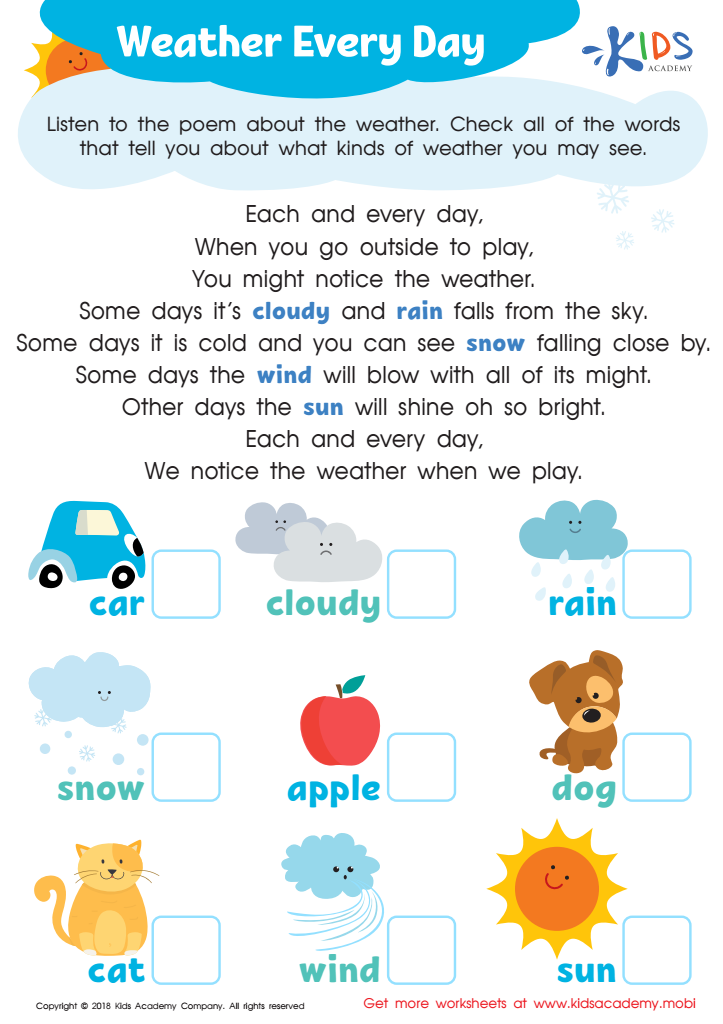

Weather Every Day Worksheet
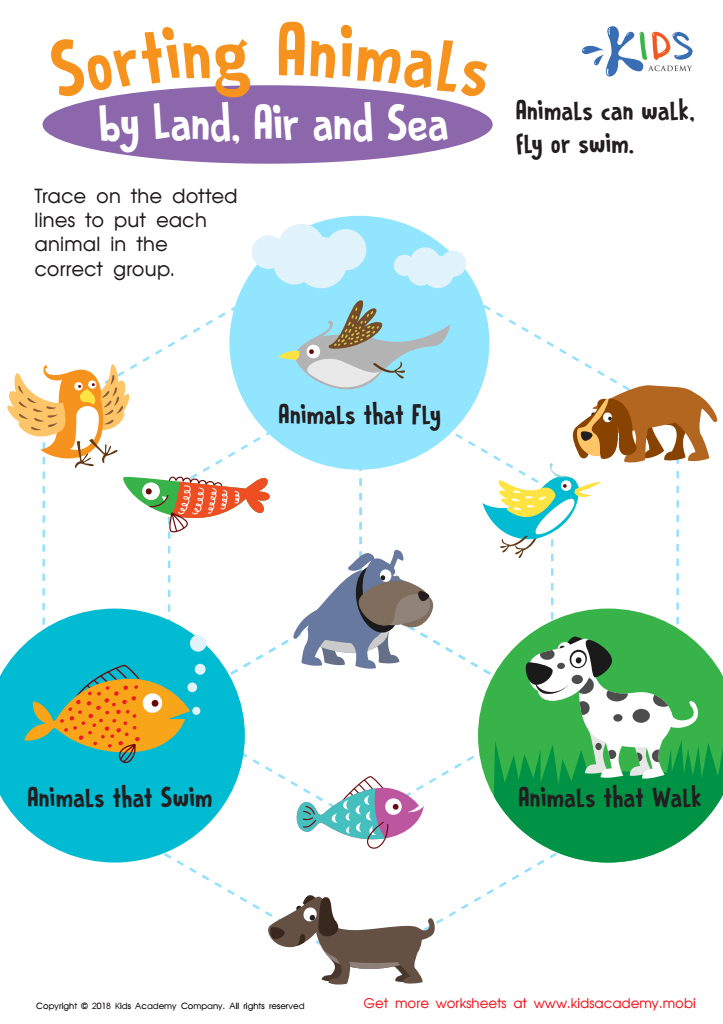

Sorting Animals by Land, Air and Sea Worksheet
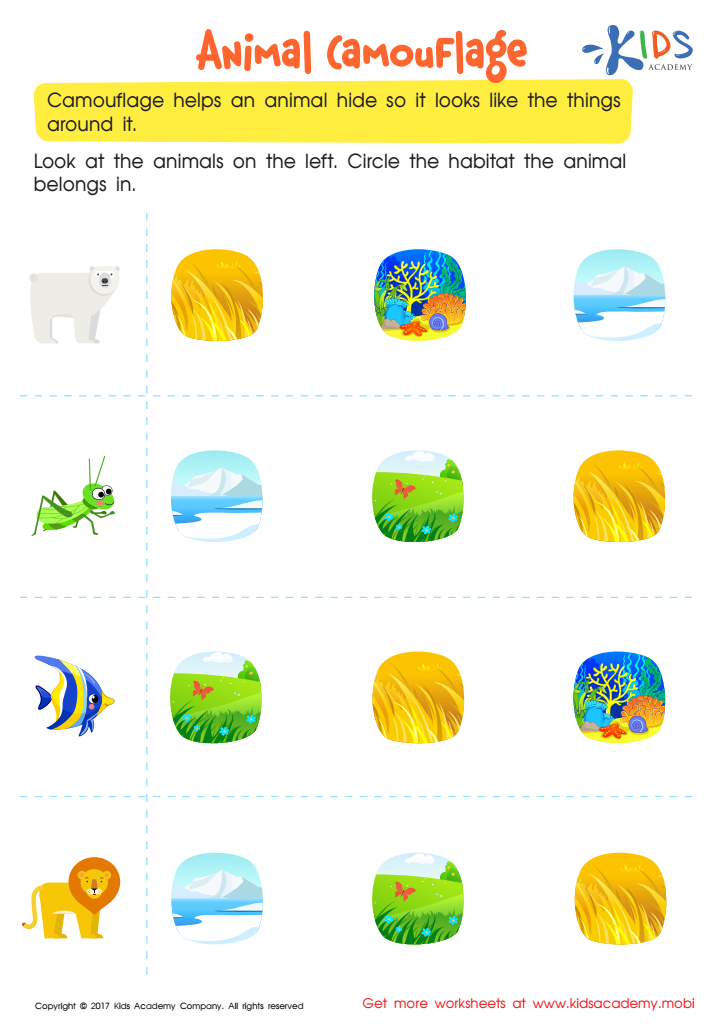

Animal Camouflage Worksheet
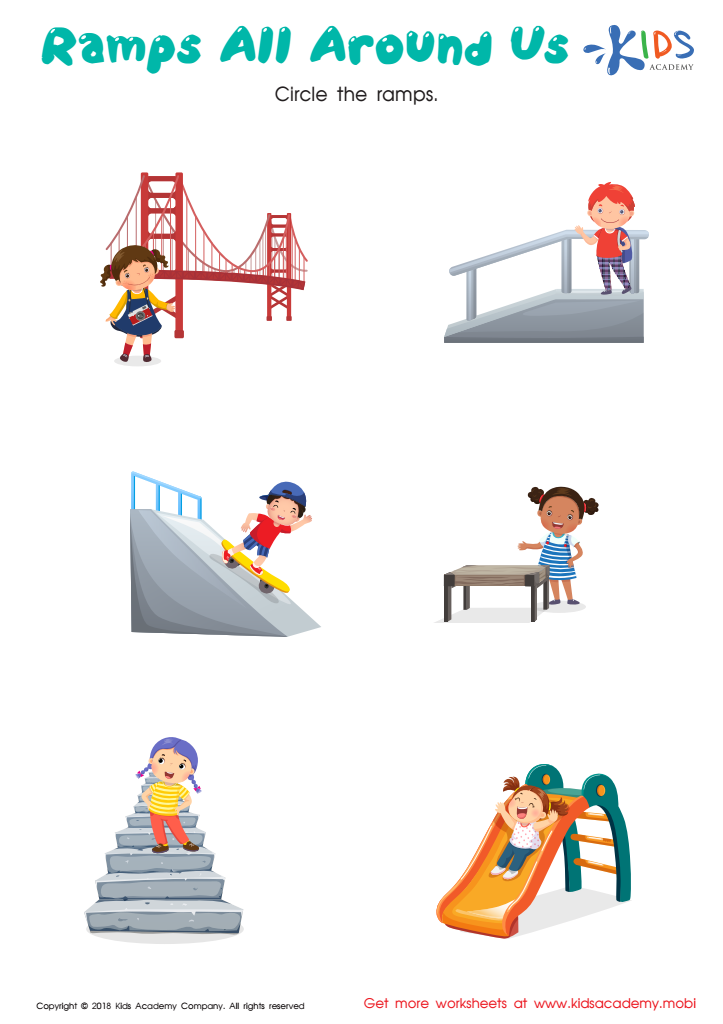

Ramps All Around us Worksheet
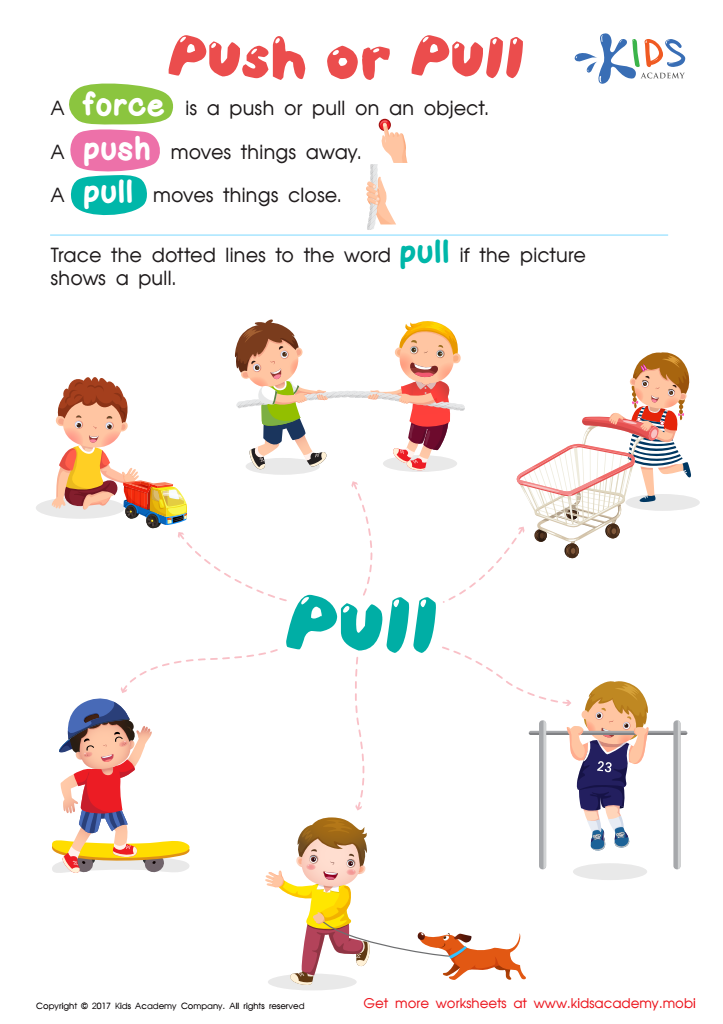

Pull or Push Worksheet
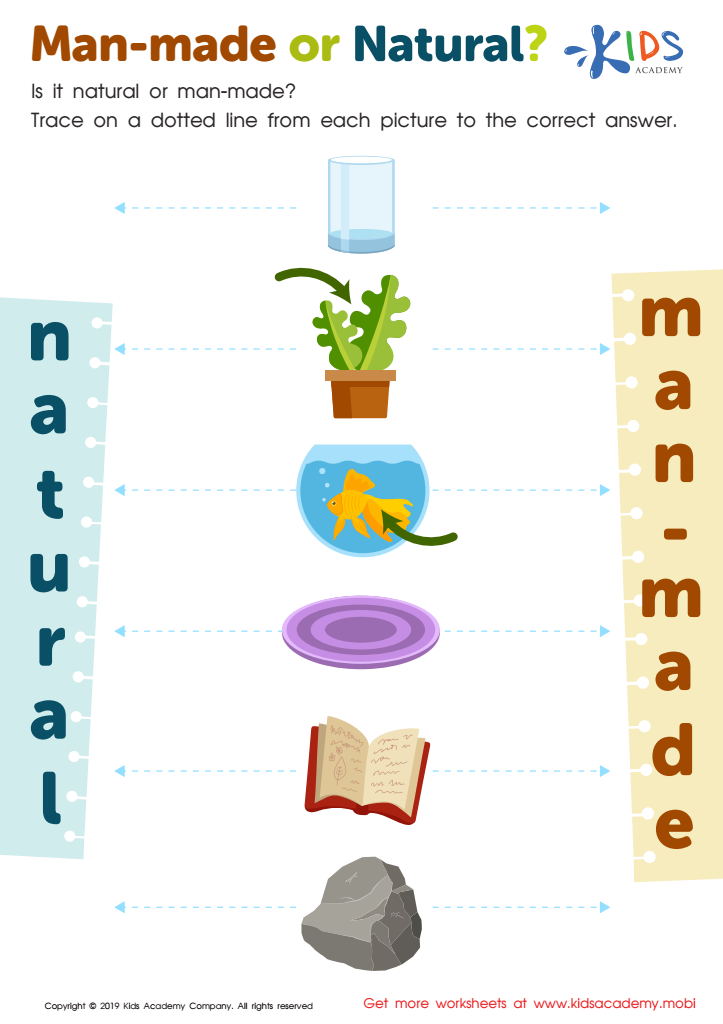

Man-Made or Natural? Worksheet
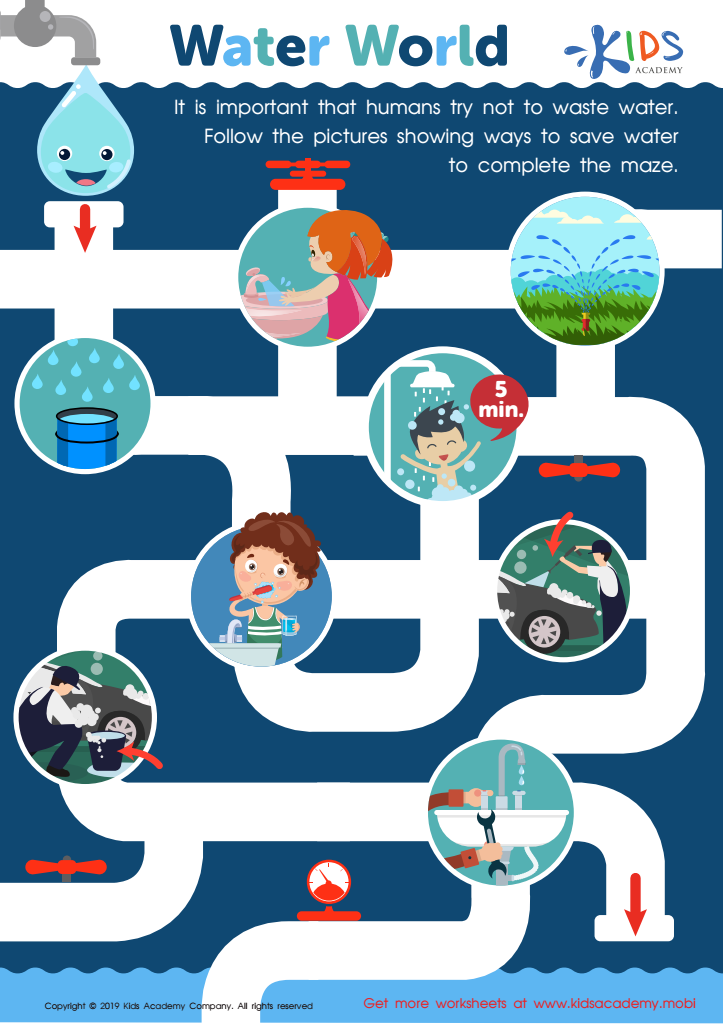

Water World Worksheet
Enhancing observation skills in young learners, particularly in the ages of 5-9, is crucial for their cognitive and emotional development. At this stage, children are naturally curious and eager to explore their surroundings. By sharpening their observational abilities, parents and teachers can foster a rich environment that encourages inquiry-based learning. Observational skills help children accurately interpret their experiences, enabling them to ask questions, make predictions, and draw conclusions about the world around them.
Additionally, improved observation skills promote critical thinking and problem-solving, essential components of scientific literacy. Engaging children in hands-on science activities that require close monitoring of changes and patterns nurtures these skills while making learning more interactive and enjoyable.
Enhancing observation also has social and emotional benefits; children learn to consider others’ perspectives and feelings, which contributes to empathy. When parents and teachers prioritize these skills, they not only enrich children's academic experiences but also equip them with the necessary tools to navigate their environment thoughtfully. Ultimately, fostering observation skills is a foundational step toward instilling a lifelong love for learning and inquiry in children, key components for their future success in both science and everyday life.
 Assign to My Students
Assign to My Students






